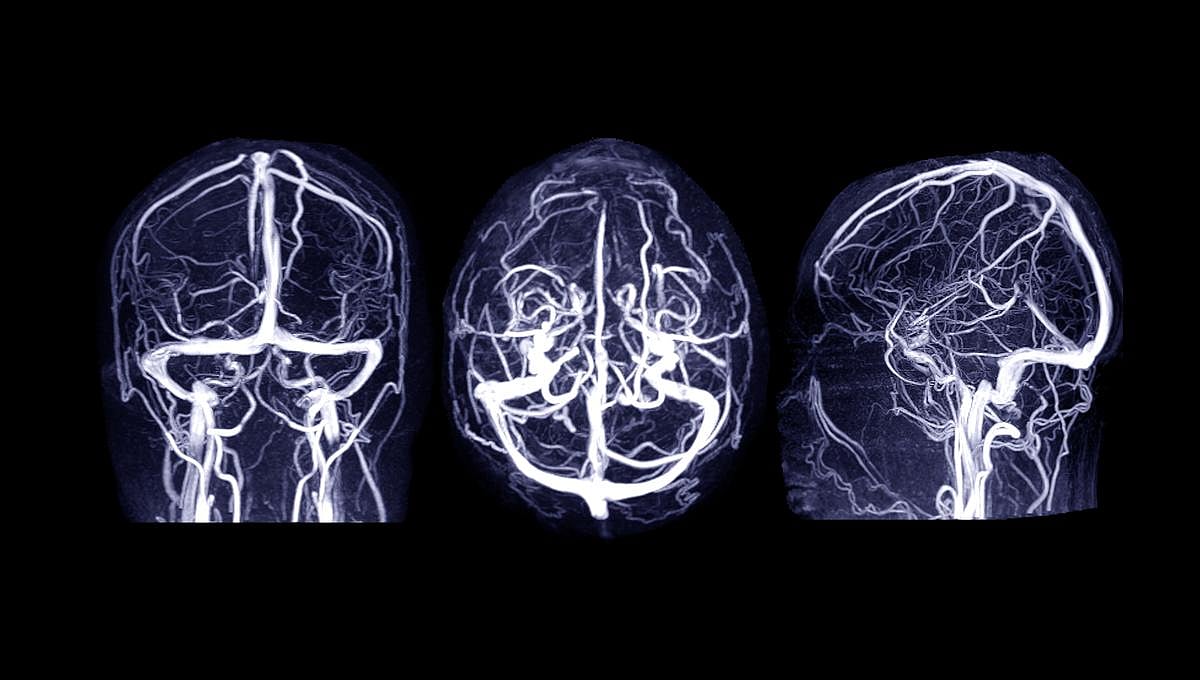Patient Resources
Get Healthy!
Are Young People With Eating Disorders Predisposed to Them?
- January 14, 2025
- Dennis Thompson
- HealthDay Reporter

Eating disorders appear to be linked to differences in brain structure among teenagers.
Young adults who develop eating disorders appear to have delayed brain maturation as teenagers, MRI scans show in a new study published Jan. 10 in the journal Nature Mental Health.
In particular, reduced maturation of the cerebellum -- a brain region that controls appetite -- helped explain an increased risk of unhealthy dieting or purging by age 23, researchers said.
“Our findings reveal how delayed brain maturation during adolescence links genetics, mental health challenges and disordered eating behaviors in young adulthood, emphasizing the critical role of brain development in shaping eating habits,” lead researcher Xinyang Yu, a doctoral student at the King’s College London Institute of Psychiatry, Psychology & Neuroscience, said in a news release from the university.
For the study, researchers analyzed data from nearly 1,000 people in England, Ireland, France and Germany. The participants all underwent MRI scans at ages 14 and 23, provided samples for genetic analysis, and completed questionnaires related to their eating habits.
By 23, about 42% of the participants had healthy eating behaviors, 33% tended to diet and purge, and 25% were binge eaters, researchers noted.
Eating disorders were linked to emotional problems in their teenage years like anxiety and depression, researchers found, as well as behavioral problems like hyperactivity.
Anxiety and depression also significantly increased among unhealthy eaters as they became young adults, researchers added.
The MRI scans revealed that these mental health problems and subsequent eating disorders might be explained by slower maturation of some participants’ brains.
Teenagers’ brains tend to mature as they grow into adulthood, with the outer layer of the brain shrinking in size as unnecessary neural connections are pruned away.
But people with eating disorders tended to undergo this process more slowly, due to genetic and environmental factors, results show.
In particular, a genetic risk for obesity and high teenage BMI both influenced brain maturation and, as a result, the likelihood a person would develop an eating disorder by age 23.
“By showing that different unhealthy eating behaviors are linked to differential trajectories of mental health symptoms and brain development, our findings may inform the design of more personalized interventions,” co-author Zuo Zhang, a research fellow at King’s College London, said in a news release.
In particular, teenagers with mood and behavioral disorders might be helped by education aimed at promoting healthy eating, researchers said.
“This could play a crucial role in preventing eating disorders and supporting overall brain health,” senior researcher Sylvane Desrivieres, a professor of biological psychiatry at King’s College London, concluded in a news release.
More information
The American Psychiatric Association has more on eating disorders.
SOURCE: King’s College London, news release, Jan. 10, 2025

